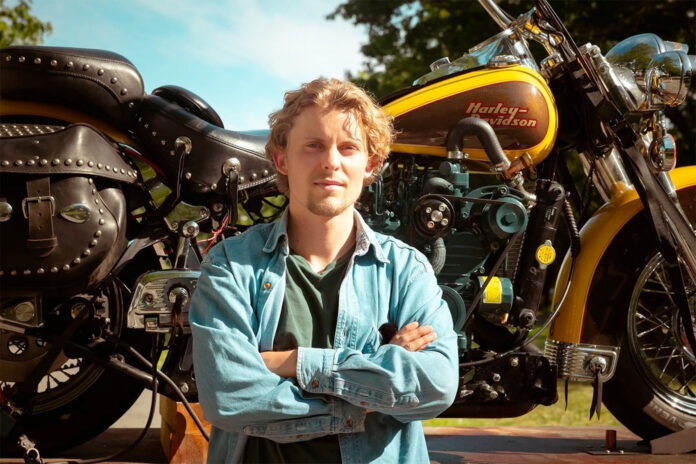A modified Harley-Davidson motorcycle running on used cooking oil may not be the first thing that comes to mind when discussing sustainable transport, but for one engineering student at the University of British Columbia (UBC), it’s a tangible way to demonstrate the viability of clean fuels.
Alex Jennison, a 22-year-old undergraduate, and his team have turned a 1999 Harley-Davidson Heritage Softail into a biodiesel-powered vehicle—one that quite literally runs on fryer grease. The project, part of a broader initiative to reduce carbon emissions on the UBC campus, aims to replace diesel fuel used in the university’s trucks and machinery with biodiesel derived from cafeteria waste.
Why a Harley—and why biodiesel?
The Harley-Davidson wasn’t chosen for style points alone. Jennison specifically selected the 1999 model because it was the last year the engine and gearbox were manufactured as separate units, making it easier to retrofit. The stock Harley engine was removed and replaced with a 3-cylinder Kubota diesel engine, traditionally used in tractors.
“Everybody modifies their Harley-Davidson motorbikes, personalizing them,” Jennison explained. “The idea was to bridge the old and the new, doing something outrageous to an iconic motorcycle that everyone recognizes.”
Though engine specs weren’t officially disclosed, it is believed to be the 1,647cc D1703 Kubota engine, delivering roughly 35 horsepower.
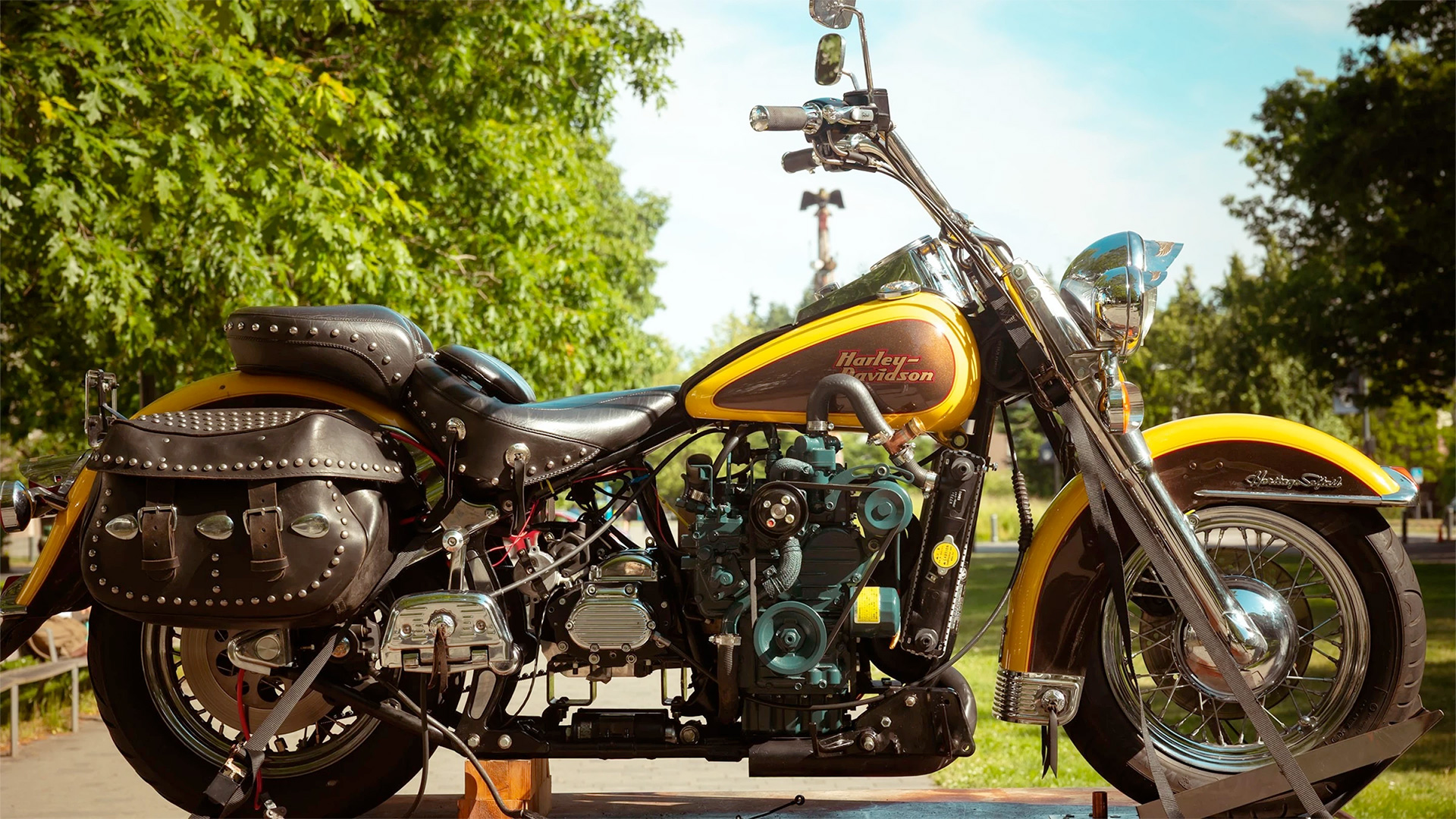
A real-world demonstration
To put the machine to the test, Jennison is currently riding the bike over 1,200 miles (1,931 km) along the U.S. West Coast. His goal is not just to prove the motorcycle works but to showcase biodiesel’s real-world viability as an alternative to fossil fuels.
“After 12 months of scrambling at how to put a diesel tractor engine in a motorcycle—late nights, machining, welding, and begging for technical advice—I’ve built a biodiesel-powered Harley Davidson from scratch. Not for profit. Not for show. But to prove a point: Clean fuels are viable today,” Jennison wrote in a LinkedIn post.
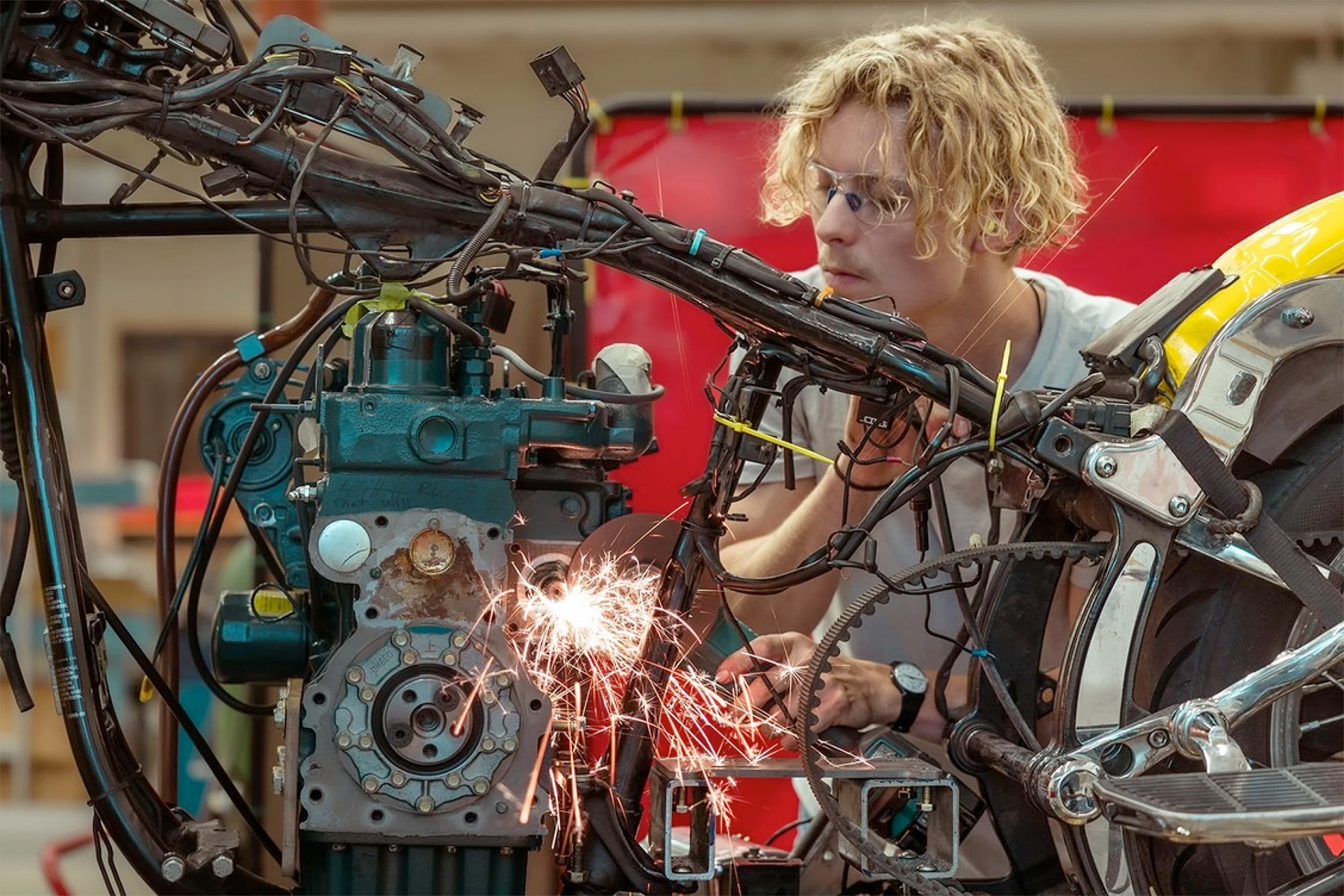
Repurposing campus waste
The project goes beyond a single motorcycle. On UBC’s campus, used cooking oil is typically hauled away at a cost to restaurants. Jennison’s team proposes chemically processing this waste oil into biodiesel and using it to power the university’s 400-vehicle fleet.
“You could take vegetable oil that is usually thrown away and put it through a chemical process to use it to power equipment so the UBC fleet could run on waste oil from its own cafeterias,” Jennison explained.
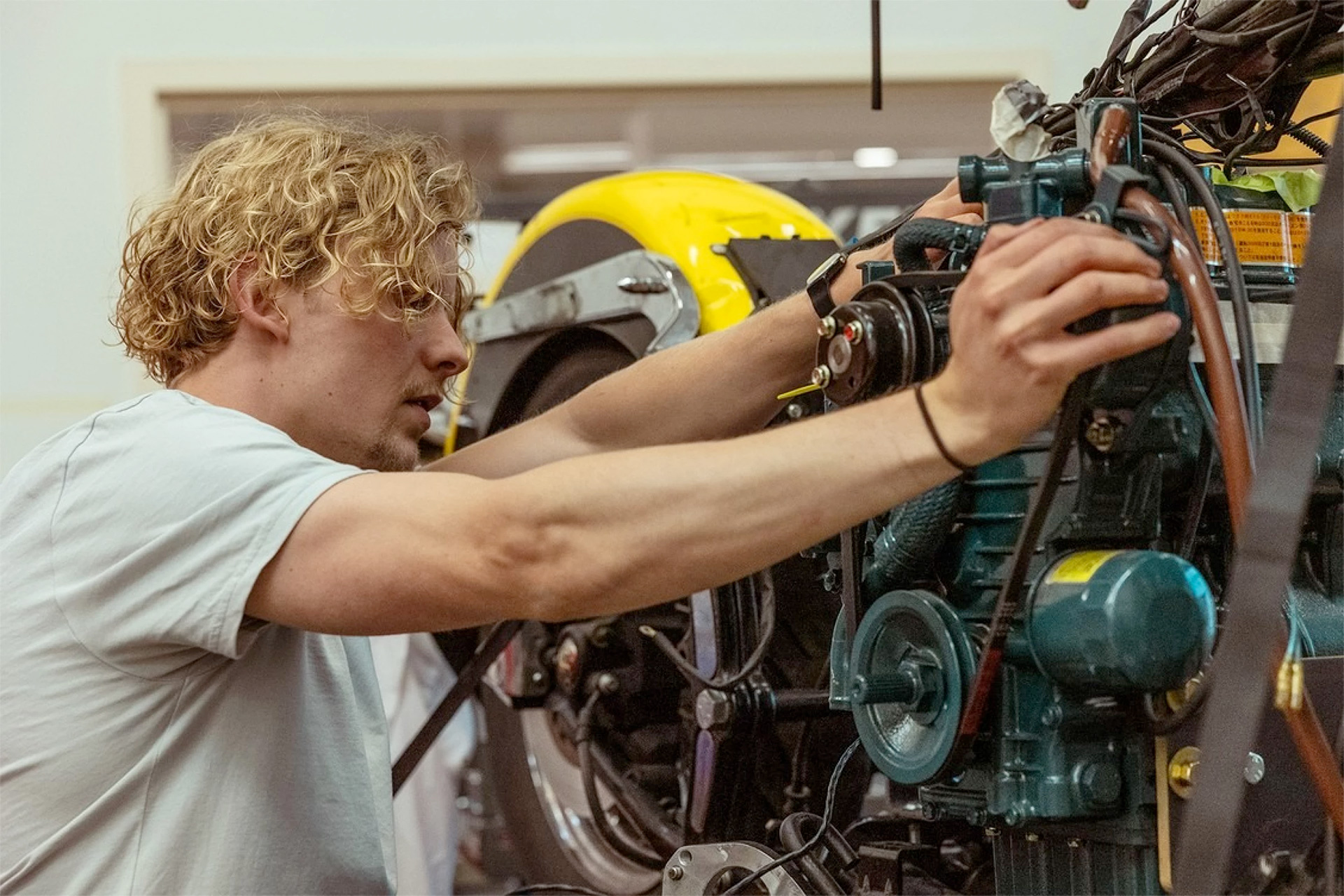
In collaboration with the university’s fleet operators, Jennison and his team developed biodiesel blends that remain effective in colder climates. According to their claims, switching to such biodiesel could reduce CO₂ emissions by up to 74%.
Criticism of EVs and ethical sourcing
Jennison also challenges the narrative that electric vehicles (EVs) are the ultimate solution. In his view, the heavy dependence on rare earth materials for EV batteries raises ethical and environmental concerns.
“Most university and municipal fleets still run on diesel, and heavy-duty electric vehicles still rely on materials like cobalt, mined by children, women, and men in the DRC, seven of whom die a week in collapsed mines. Copper – extracted by burning Amazon basin ecosystems to the ground,” he wrote.
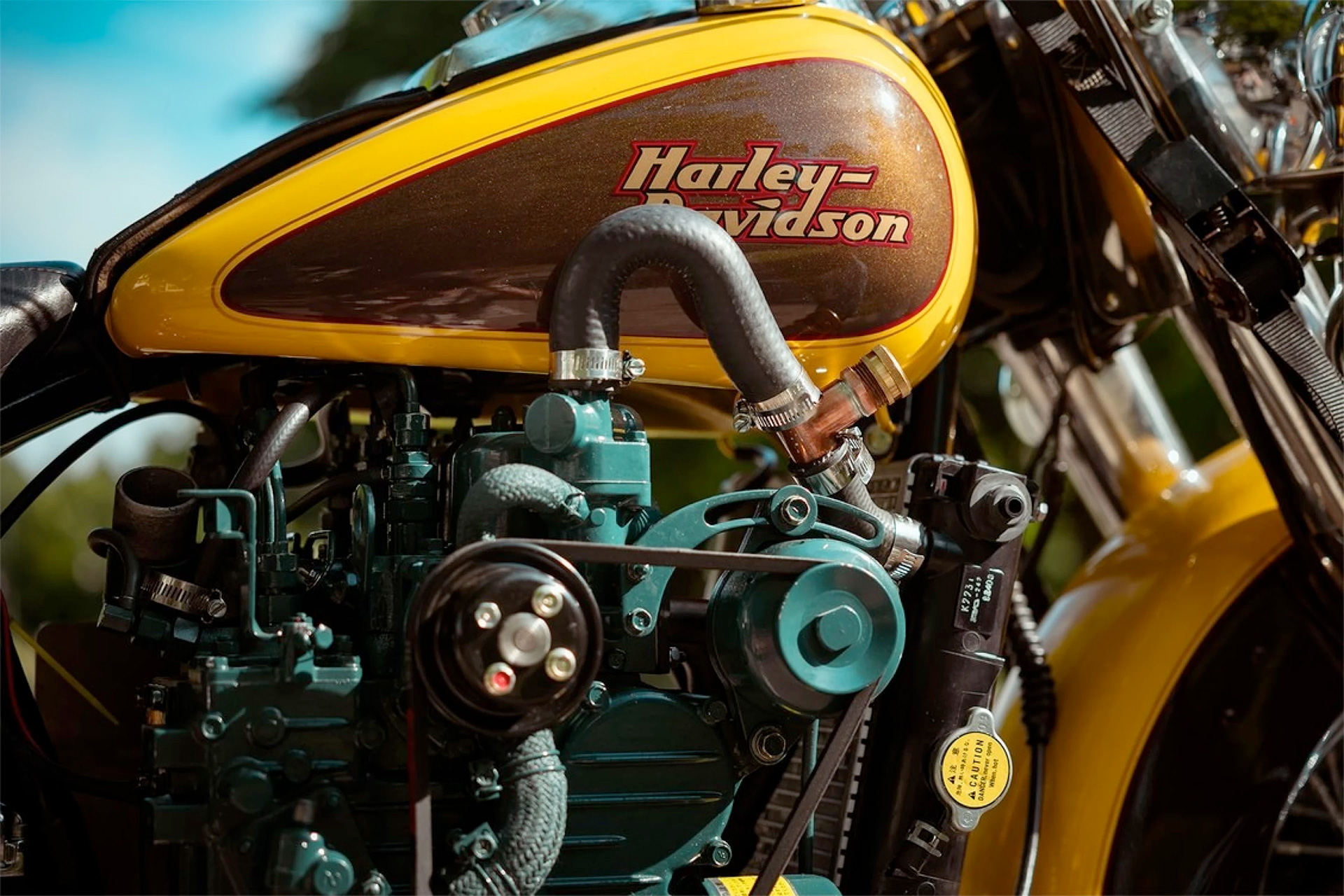
The biodiesel Harley, then, is not just an engineering experiment—it’s a rolling critique of mainstream clean energy practices, highlighting a solution that repurposes waste rather than shifting dependencies.
A rolling proof of concept
Jennison refers to the modified Harley as “a rolling proof of concept.” With a GoFundMe campaign in place, the team hopes to raise enough support to continue the bike’s journey and expand awareness about the role waste-based biodiesel could play in decarbonizing public fleets.
Source: GoFundMe

